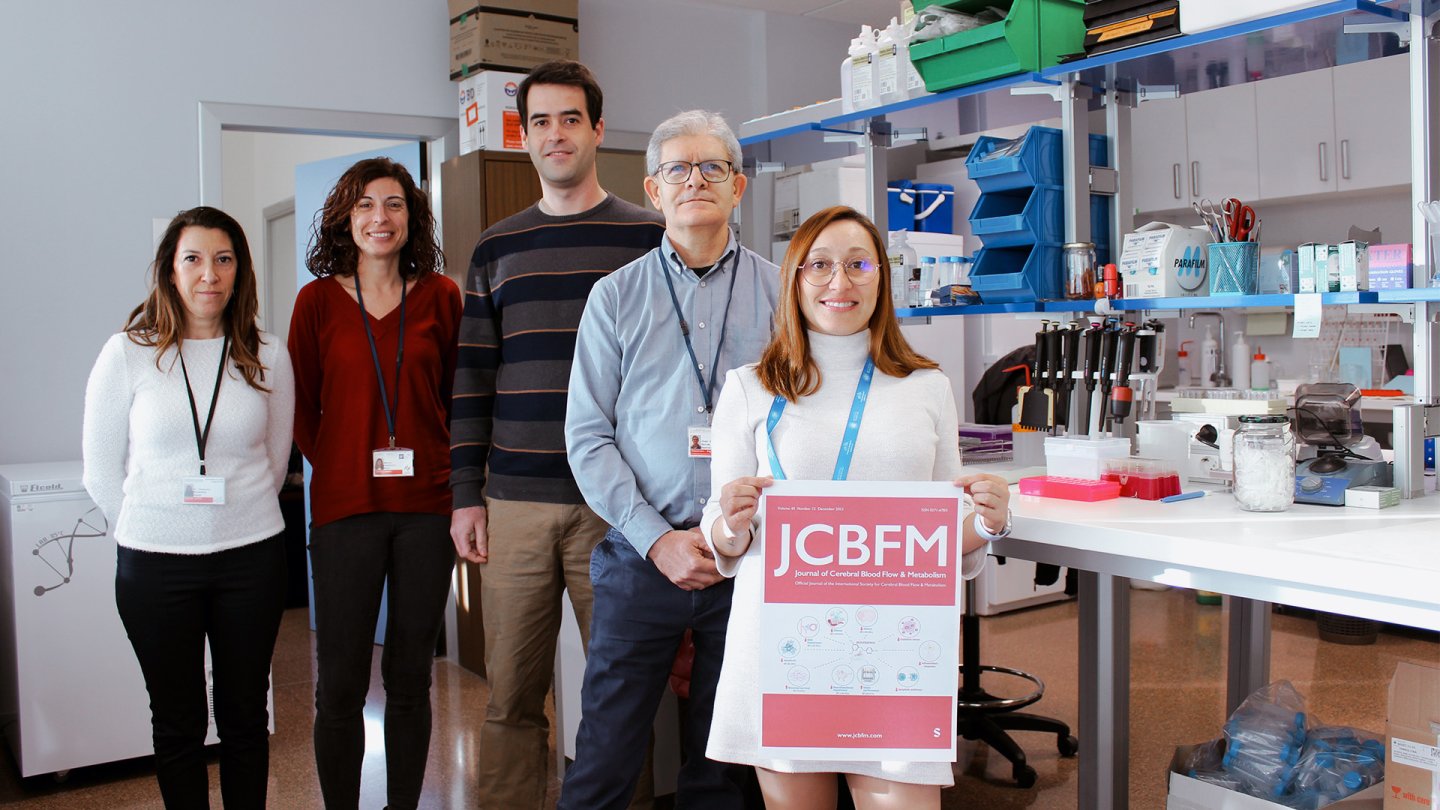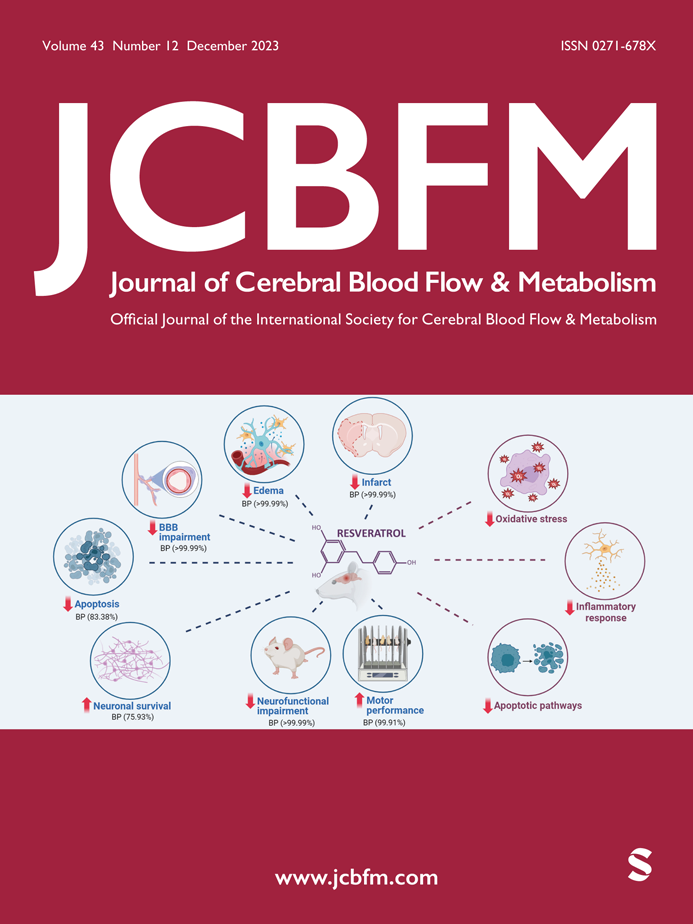News
A study conducted by IIS La Fe unveils the benefits of resveratrol in animal models of ischemic stroke.
- The study concludes that this natural substance reduces the impact of stroke on the brain and enhances motor performance after a stroke in experiments with rodents - The article published in the Journal of Cerebral Blood Flow & Metabolism has been featured on the cover of the magazine

The Joint Research Unit on Cerebrovascular Research at La Fe Health Research Institute (IIS La Fe), in collaboration with the Department of Applied Statistics and Operational Research and Quality at Universitat Politècnica de València, as well as the Department of Neurology at the University of Miami, has conducted a study on the effects and mechanisms of action of resveratrol in animal models of ischemic stroke.
Following a systematic literature review and a meta-analysis to synthesize and quantify the cerebroprotective effects of resveratrol and understand its mechanisms of action, the research team has discovered that resveratrol treatment in rodent models of ischemic stroke shows significant potential benefits.
These findings could open new avenues in the treatment of this devastating disease. Resveratrol is a natural compound belonging to the group of polyphenols, found in various plants, especially in red grapes, nuts, and some berries. It has been studied for other conditions such as cancer and cardiovascular diseases due to its antioxidant and anti-inflammatory properties.
High Likelihood of Benefit
Specifically, a reduction in infarct size, cerebral edema, impairment of the blood-brain barrier, and neurofunctionality deterioration has been observed, along with an increase in motor performance. Additionally, though with lower probability, the study concludes that resveratrol also demonstrated increased neuronal survival and reduced apoptosis, crucial processes in brain recovery.
These positive effects have been linked to resveratrol's ability to reduce oxidative stress and inflammation, as well as inhibit apoptosis or programmed cell death pathways. Despite these encouraging results, the study authors emphasize the need for further high-quality preclinical research to substantiate and design investigations into resveratrol treatment for stroke survivors.
The article by the Joint Cerebrovascular Research Unit of IIS La Fe and its collaborators is featured in the December issue of the Journal of Cerebral Blood Flow & Metabolism, with an image on the cover and a review in the table of contents.

About Ischemic Stroke
Ischemic stroke occurs when a blood clot blocks a blood vessel in the brain, preventing the flow of blood, oxygen, and nutrients. Although treatments have been developed to remove clots and restore blood flow, research underscores the importance of cerebroprotective treatments that reduce brain damage during the time the brain is deprived of blood. In this context, resveratrol emerges as a promising candidate.
Ischemic stroke is a highly prevalent disease, causing death or permanent disability in many affected patients. In Spain, over 100,000 people suffer a stroke each year, with approximately one in six succumbing to the condition. It is the leading cause of death in women and the second leading cause in men, according to data from the Spanish Society of Neurology (SEN).
López-Morales MA, Castelló-Ruiz M, Burguete MC, Hervás D, Pérez-Pinzón MA, Salom JB. Effect and mechanisms of resveratrol in animal models of ischemic stroke: A systematic review and Bayesian meta-analysis. J Cereb Blood Flow Metab. 2023 Dec;43(12):2013-2028. doi: 10.1177/0271678X231206236. Epub 2023 Oct 6. PMID: 37802493.







